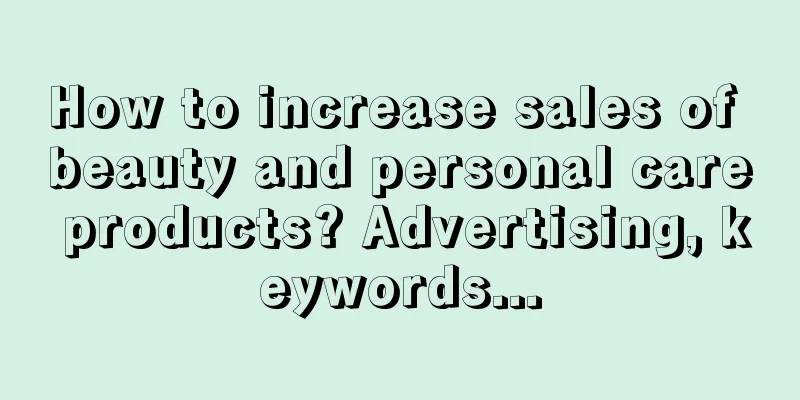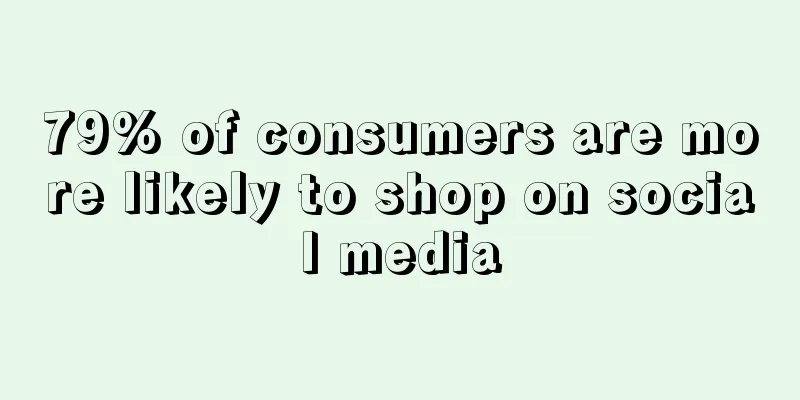How to increase sales of beauty and personal care products? Advertising, keywords...

|
The pandemic has prompted consumers to turn to online shopping, especially in the beauty, health and personal care sectors.
Research firm Ideoclick predicts that the proportion of online sales in the global health and beauty sector is expected to rise from 16.5% in 2020 to 23.3% in 2025. In addition, a survey of more than 2,000 American consumers showed that most consumers have purchased these products online . Among them, 67% of consumers have purchased beauty products online , and 80% have purchased health and personal care products online .
According to the survey, social platforms have a huge impact on brand and product awareness , but rarely promote direct purchases : 41% of beauty consumers and 33% of health and personal care consumers said they might buy a product because of seeing it on a social platform . However , they usually buy through other channels, and only a very small number of consumers said they would buy directly on social platforms .
According to Statista, consumers spent an average of 145 minutes per day on social media in 2020. Social media advertising has a huge influence on consumers.
Counterfeit products are a common problem for beauty, health and personal care brands. More than half of online beauty, health and personal care product consumers are concerned about counterfeit and imitation products. Consumers are usually unable to distinguish between genuine products and imitations , and it is easy to buy the wrong product.
Brands and sellers can enhance customer trust by highlighting the authenticity of their products in ads and listings and showcasing their unique features to distinguish them from counterfeits .
79 % of consumers said that their preferred platform for buying beauty products online is retailer websites (such as Amazon, Walmart, Target, etc.). 14% of consumers said they would choose DTC websites, and only 7% chose social platforms .
For health and personal care products, 86% of consumers prefer to buy through retailer websites, while 9% and 5% prefer direct-to-consumer websites and social platforms, respectively .
It is understood that consumers usually search for two to four keywords when shopping online . Compared with broader short-tail keywords, highly specific keywords have much better results . Companies can drive sales by using unique and targeted long-tail keywords. For example, using "black all- natural liquid eyeliner " is more effective than "eyeliner" . cosmetic Personal Care healthy |
>>: Logistics costs will continue to rise next year, and it is not impossible that they will double!
Recommend
What is MatrixForce? MatrixForce Review, Features
MatrixForce (Xunliao Technology) is an incubation...
Another company under the top seller goes bankrupt!
Nowadays , the market is still cold, the global c...
Yoga wear and fitness clothes have become hot-selling items online in Southeast Asia!
The outbreak of the epidemic in some parts of the...
Caught off guard, Etsy announced that it will ban the sale of gun parts from May 25
Etsy said that from May 25, 2021, it will no long...
How to refund tax in 2021, sellers on the UK site should pay attention
The UK has implemented a new tax reform policy, a...
What is cecobox? cecobox Review, Features
The cecobox is a patented foldable box that provi...
What is Ebay Promoted listings? Ebay Promoted listings Review, Features
Promoted listings is an advertising service desig...
KPMG releases authoritative report: Shopee and Lazada rank top 2 in Southeast Asia e-commerce market
Recently, KPMG and GS1 jointly released the 2024 ...
What is Atome? Atome Review, Features
Atome is a profit growth platform launched for gl...
What is Ulta Beauty? Ulta Beauty Review, Features
ULTA Beauty is the largest one-stop beauty retaile...
eBay launches new feature that lets you create new listings in half the time
As one of the world's most popular e-commerce...
What is Bombas? Bombas Review, Features
Bombas is a website that sells socks. About Bomba...
Price increase of more than 10%! Raw materials are in short supply, and flat-panel TVs are in short supply
For many consumers, the holiday season offers gre...
Tesco's full-year profit falls to £825m despite 77% increase in online sales
Britain's Tesco reported adjusted results on ...
Business grows 80% per month! Indonesian social e-commerce KitaBeli receives $10 million in Series A funding
KitaBeli, an Indonesian social commerce group buy...









